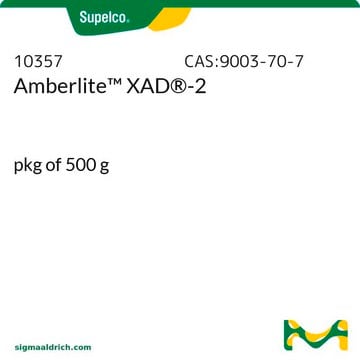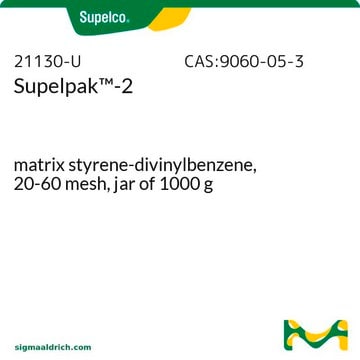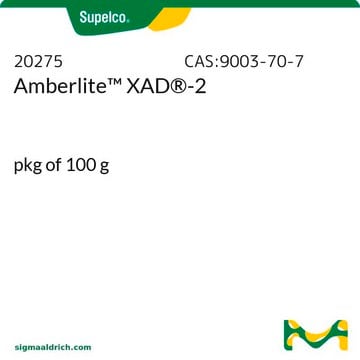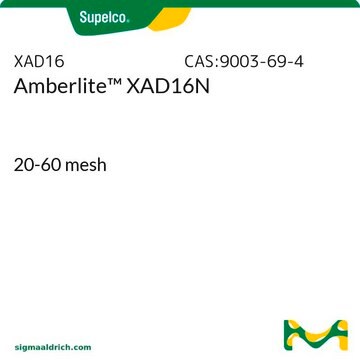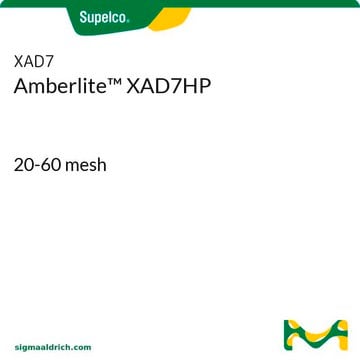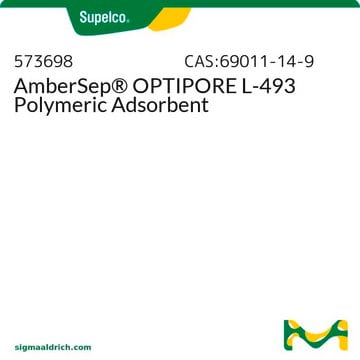20279
Supelpak™-2
matrix styrene-divinylbenzene, 20-60 mesh, jar of 100 g
Synonym(s):
XAD®-2
About This Item
Recommended Products
Agency
ASTM® D6209
EPA 10,20,23,23A,TO-13A
description
purified XAD-2
form
beads (small)
packaging
jar of 100 g
parameter
200 °C max. temp.
technique(s)
GC/MS: suitable
LPLC: suitable
surface area
~300 m2/g
matrix
styrene-divinylbenzene
matrix active group
polymer
particle size
20-60 mesh
pore size
~0.65 mL/g pore volume
90 Å mean pore size
density
1.02 g/mL at 25 °C (true wet)(lit.)
1.07 g/mL at 25 °C (skeletal)(lit.)
application(s)
environmental
separation technique
reversed phase
Looking for similar products? Visit Product Comparison Guide
General description
Application
Legal Information
Storage Class Code
11 - Combustible Solids
WGK
WGK 3
Flash Point(F)
Not applicable
Flash Point(C)
Not applicable
Personal Protective Equipment
Choose from one of the most recent versions:
Already Own This Product?
Find documentation for the products that you have recently purchased in the Document Library.
Customers Also Viewed
Related Content
Low pressure liquid chromatography (LPLC) operates at low pressures, using a pump to drive the mobile phase onto the column.
Low pressure liquid chromatography (LPLC) operates at low pressures, using a pump to drive the mobile phase onto the column.
Low pressure liquid chromatography (LPLC) operates at low pressures, using a pump to drive the mobile phase onto the column.
Low pressure liquid chromatography (LPLC) operates at low pressures, using a pump to drive the mobile phase onto the column.
Our team of scientists has experience in all areas of research including Life Science, Material Science, Chemical Synthesis, Chromatography, Analytical and many others.
Contact Technical Service